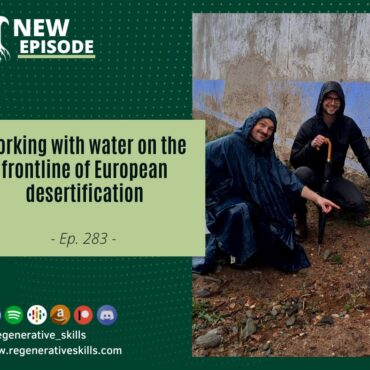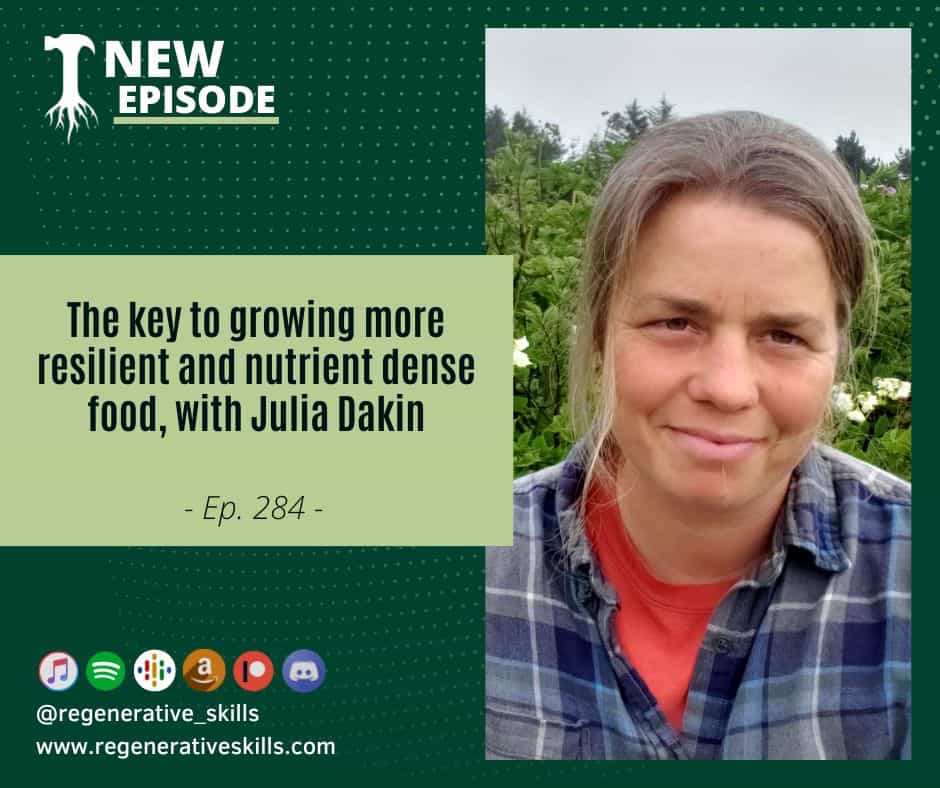
Working with water on the frontline of European desertification
If you’ve been following the episodes so far this season, you know I’ve got a lot of projects and travels going on right now. Since the episode I recorded in […]


In my work with farmers and clients I’ve always looked for the leverage points where small actions can lead to the largest changes and progress. Where is it that a beginner or novice can invest some resources and make big leaps rather than burning out for small results. In fact, as I’m in the early stages of renovating my own house and farm, this is a source of constant reflection for me as well.
This line of thinking has led me to focus so much on water, since basically all life is dependent on it, and if you can keep your landscape hydrated you can massively increase the living capital potential regardless of what you’re producing or what ecosystem you inhabit.
Another leverage point that I’ve become increasingly focused on, thanks to the work of Julia Dakin and Joseph Lofthouse of the “Going to Seed” organization, is that of landrace gardening and plant breeding. I won’t give away too much because we’ll go deeper into it in the episode, but the broad concepts is, why go through all the effort of trying to adapt the conditions of your environment, your soil, water access, and other conditions, in order to grow plants that were either grown in greenhouses or completely distinct environments, when you could instead breed resilient and thriving cultivars that are adapted to your specific growing conditions.
In order to shed light on this ancient concept today is Julia Dakin.
Julia is a food and seed producer in Mendocino County, California. She has been involved in agriculture for most of her life, and has devoted the past few years to growing market crops and teaching the benefits of seed saving, local adaptation, and genetic diversity. For the last year she’s been collaborating with Joseph Lofthouse to create the course Landrace Gardening.
Over the last six months, she co-founded an organization called Going to Seed, whose mission statement is ‘inspiring a shift in agriculture towards adaptation, diversity and community. Going to Seed now offers free seed contributed from growers in the Landrace Gardening network, as well as free online courses. More recently Julia has been working on the new online course together with collaborators in Southern Mexico called Center of Origin: Sustainable Farming Methods of Southern Mexico.
In today’s interview, Julia and I go over her adapted definition of landrace gardening and the research epiphany during the pandemic that transformed her understanding of the conditions needed to grow the most nutrient dense food.
From there we go into the practical steps on how to get started with your own landrace breeding trials and how to select for the traits you want to favor over time.
We also cover the easiest vegetables to get started with, how this can work for people with tiny gardens, and some of Julia’s own learnings from her early trials in growing her own tailored plants on her farm.
Links:
Tagged as: plant breeding, landrace gardening.

If you’ve been following the episodes so far this season, you know I’ve got a lot of projects and travels going on right now. Since the episode I recorded in […]
Copyright Regenerative Skills 2021
Matt Cantrell on March 17, 2023
It would be interesting to hear an opinion on this topic from John Kempf, who promotes the idea that healthy plants are immune to disease and insect pressures. It makes complete sense that plant health is tied to its adaptability and suitability for the location and all its benefits/challenges.
Grace on April 17, 2023
Thank you, great interview. I’m very curious about the report Julia mentioned at around the 7min mark. Have you a link please? I’ve found nothing on the Bionutrient Food Association website. I’m also perplexed, as the findings mentioned seem contrary to the associations focus. thanks